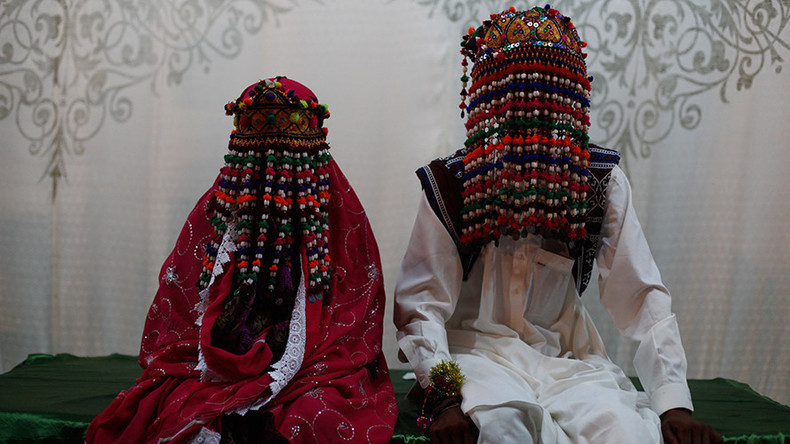Perhaps Islam is right: about women.
Sahih Muslim Book 008, Number 3310:
‘A’isha (Allah be pleased with her) reported: Allah’s Apostle (may peace be upon him) married me when I was six years old, and I was admitted to his house when I was nine years old.
Sahih Bukhari Volume 7, Book 62, Number 64
Narrated ‘Aisha:
that the Prophet married her when she was six years old and he consummated his marriage when she was nine years old, and then she remained with him for nine years (i.e., till his death).
Sahih Bukhari Volume 7, Book 62, Number 65
Narrated ‘Aisha:
that the Prophet married her when she was six years old and he consummated his marriage when she was nine years old. Hisham said: I have been informed that ‘Aisha remained with the Prophet for nine years (i.e. till his death).” what you know of the Quran (by heart)’
Sahih Bukhari Volume 7, Book 62, Number 88
Narrated ‘Ursa:
The Prophet wrote the (marriage contract) with ‘Aisha while she was six years old and consummated his marriage with her while she was nine years old and she remained with him for nine years (i.e. till his death).
 A bride and groom wearing traditional garlands, made of beads and cotton threads, on their foreheads, wait for their wedding to start during a mass marriage ceremony in Karachi © Akhtar Soomro © Reuters
A bride and groom wearing traditional garlands, made of beads and cotton threads, on their foreheads, wait for their wedding to start during a mass marriage ceremony in Karachi © Akhtar Soomro © Reuters
The Child Marriage Restraint (Amendment) Bill 2014, which would have made it more difficult for children to marry, was quickly withdrawn on Thursday by Marvi Menon of the Pakistan Muslim League party.
The decision to pull the plug on the anti-pedophilia bill was triggered by CII speaking out against the idea. The council provides advice for lawmakers on whether the newly proposed laws comply with Sharia laws.
The proposed legislation was shut down in its infancy on “purely religious grounds,” The Express Tribune reported.
CII Chairman Mohammad Khan Sheerani said the proposed law contradicted Islamic teachings.
“Parliament cannot create legislation that is against the teachings of the Holy Quran or Sunnah,” Sheerani had.
According to Pakistan’s Constitution, the CII Chairman has the final say in the Council and can overrule all of the other members. Even though the CII rulings have no power over Parliament, lawmakers take its suggestions as guidance when passing laws.
The move to withdraw the new bill goes against Pakistan’s pledge to end child marriages by 2030.
The rejected bill would have introduced tougher punishments for those entering into marriage with minors, including prison terms for up to two years. It also proposed raising the minimum age for marriage up to 18.
Current legislation is already in violation of Islamic law, according to CII, since it requires a minimum age of 16 for girls to marry.
In contrast, the CII believes that girls as young as nine could be married off, “if the signs of puberty are visible,” according to a May 2014 statement.
Over 21 percent of Pakistani girls enter into marriages before they turn 18, according to the organization Girls Not Brides.
‘Anti-Islamic’: Pakistan rejects bill banning child marriage

